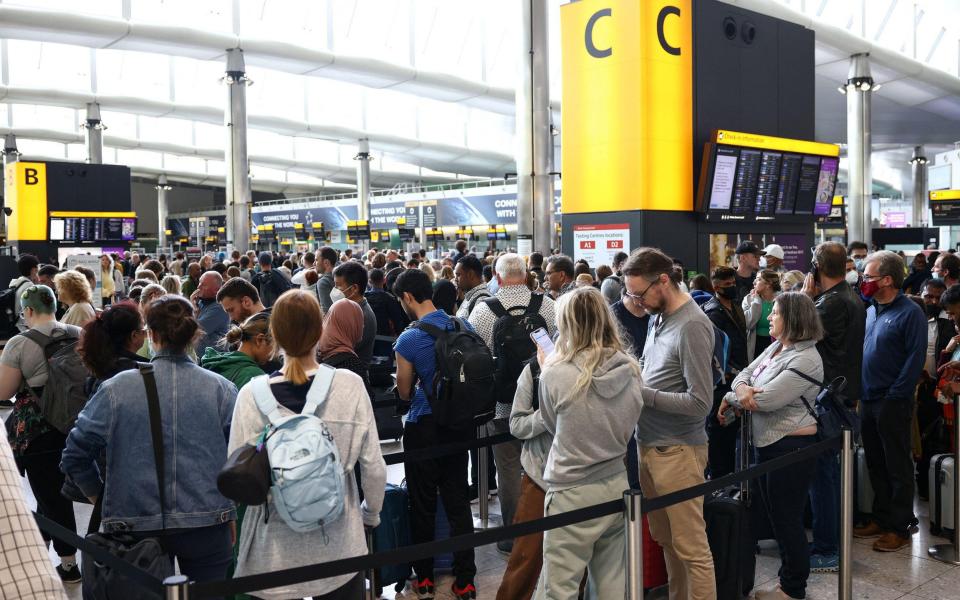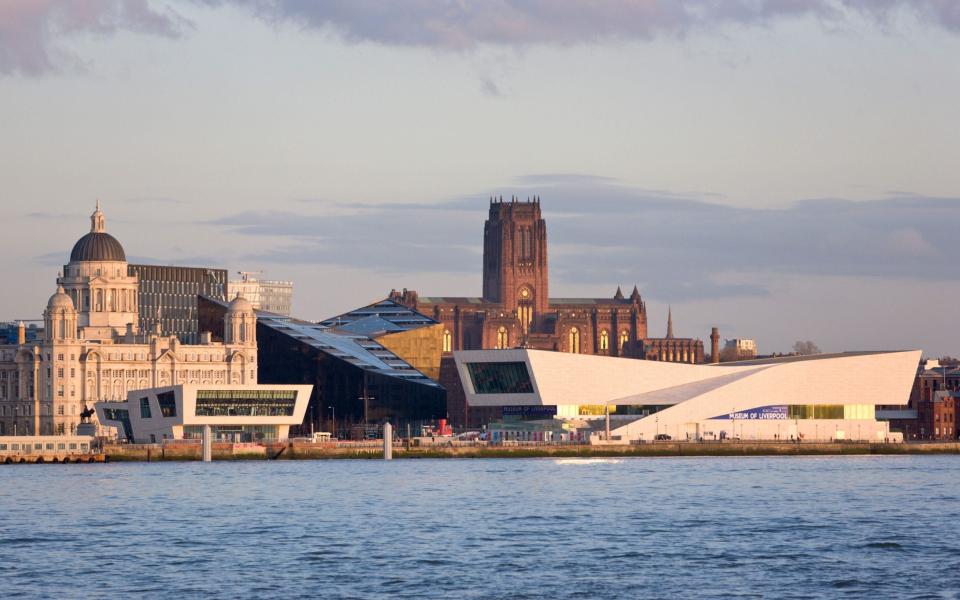Everyone’s downsizing on their UK holidays this year – except the wealthy

During the pandemic, we all discovered how great the UK is: the parks on our doorstep, the beaches a short drive away, the faraway corners we never knew existed. Despite this, however, once everything reopened in 2022, millions of us rushed to book some much-needed summer sunshine elsewhere.
So what’s in store for 2023? It seems that the cost of living crisis and last year’s travel chaos have some Britons hankering to stay at home once more. In January, 70 per cent of those interviewed for VisitBritain’s Domestic Sentiment Tracker revealed they were planning a UK break over the coming months.
“I definitely sense a renewed optimism for British holidays, reflected in the volume of new bookings we’re getting at the moment,” says Harry Cragoe, owner of The Gallivant, a boutique hotel in Camber, East Sussex. “I travelled abroad recently and the queues aren’t getting any shorter. It’s more expensive than I could ever imagine”.

Last summer’s airport chaos wasn’t a great advert for venturing overseas and it seems to have had a lingering effect on the British psyche: 40 per cent of VisitBritain’s respondents reported that queues and cancellations would make them think twice. Meanwhile, a British trip is seen as a way of controlling costs at a time when outgoings are spiralling. “If you look at what happened last time there was a recession, people tended to stay at home rather than going overseas,” confirms Patricia Yates, VisitBritain’s CEO.
Quite what that UK holiday will look like in 2023 remains to be seen though. After inflation reached a 41-year high last year, consumer confidence plunged as the cost of living crisis started to bite. Almost a quarter of those in VisitBritain’s report said they had been “hit hard”. Limiting day trips, meals out and visits to expensive attractions are all seen as valuable cost-cutting exercises, while a third of those surveyed voiced an intention to stay in less expensive accommodation.
“We can already see that people are downgrading,” says Yates. “If they go on holiday, they’re spending less. If they go to an attraction, they’re not getting the full afternoon tea”.
Hotel, motel… or a friend’s house?

As consumers look to make savings, it’s no wonder that global interest in three-star hotels is up 20 per cent, according to data from Hotels.com. Mid-range in both price and offering, they’re seen as a safe bet by consumers, which may explain why chains such as Travelodge are flourishing. Recently, the brand began opening more outposts at the edges of cities where it can keep room rates low and where costly extras such as parking are less of a problem.
Aware of a rising number of younger midweek guests taking advantage of more flexible working policies, Cragoe has made some concessions to the cost of living crisis too. “We’re definitely seeing more people with laptops and we’re encouraging that.
“I have a 26-year-old daughter and that sort of age, mid-twenties, is probably the hardest hit. They’re at the start of their careers. They haven’t got much disposable income. So last year, I launched a ‘30 under 30’ offer. The idea is that, if you’re under 30, you can stay on a Sunday or Monday night at 30 per cent off.” The hotel will soon begin offering simpler, more affordable meals too (“one-plate dishes that are guilt-free. You can eat them without worrying about spending too much money”).

While business is booming at The Gallivant, another type of accommodation seems to be falling out of favour. According to VisitBritain’s data, far fewer people intend to stay in a rented house than a year ago, indicating that the UK’s Airbnb bubble may have burst. One factor is an increase in those hoping to save money by staying with friends and family but there may be other reasons too.
“Airbnb made a big splash when it started. People were letting out pretty nice places very cheaply,” says Chris Tate, Head of Hotels and Accommodation at audit, tax and consulting firm RSM. “But there’s no guarantee what you’ll get until you’re there. Meanwhile, with hotels or holiday parks, there’s a comfort factor in being able to go on Tripadvisor or social media and find out what you need to know”.
Staycations for the super-rich

Of course, for those rich enough, holidays will continue as they always have. In an attempt to keep these people in the UK, some venues and operators have upped their game, throwing out the cottage-core curtains and DIY attitude in favour of luxurious interiors more akin to Bali or Ibiza, as well as a full concierge service.
Among the new wave of self-catering properties is Terrarium in Bosham, Sussex, a seriously impressive mansion that’s one of luxe self-catering agency Unique Homestays’ most-scrolled options. Inspired by Thai spas and curling around a natural pool hemmed by slick sunloungers, it looks like a chic hotel and can be booked with accompanying massages and private catering.
Meanwhile, luxury hotel chain Mandarin Oriental is also offering private stays, in quasi-stately homes with in-house chefs and helicopter landing pads. “Luxury needs to look after guests. It needs to be about personal experience,” says Yates. “I think we’re getting better at that.”
Destinations du jour

While the super-rich are visiting other people’s country piles, there’s more uncertainty about where the rest of us will go. VisitBritain’s research revealed that fewer people expect to head to London in the first quarter of 2023 than did last year, possibly put off by the cost.
However, another British city is predicted to fare better: Edinburgh was cited by Expedia as one of its fastest growing destinations for 2023. Meanwhile, Eurovision will be a big boost for Liverpool after its much-publicised loss of Unesco status.
“It feeds into the story about British music,” says Yates. And in what could be a blessing for wider Northern tourism, “Liverpool won’t have enough accommodation, so people are going to have to travel”.
Regional tourism, however, is predicted to tail off slightly after a strong 2022 according to PWC. Still, some destinations will buck the trend: Yates mentions increased interest in the Peak District for example. And there’s another perennially popular region that’s forecast to continue to thrive in 2023. Despite much-publicised overtourism, the South West is still the region that most UK holidaymakers hope to visit.
Will we be paying more?
Rising running costs have been mostly shouldered by hotels so far but these may have to be passed on to the consumer going forward. “Hotels really struggled to get staff back for a few reasons post-pandemic so wages went up quite significantly in the sector,” says Tate. “But it’s not just salaries, it’s everything else. Hotels had the advantage of being on long-term fixed energy tariffs and now these are coming to an end.”

If hotels look to protect guests from rising costs, visitors might notice small changes to their experience. One suggestion from PWC is that they slightly decrease in-room temperature by “barely noticeable” levels to save on energy bills. Meanwhile, “some hotels are reducing the frequency of guest housekeeping visits for multi-night stays or making them opt-in,” said a company spokesperson.


